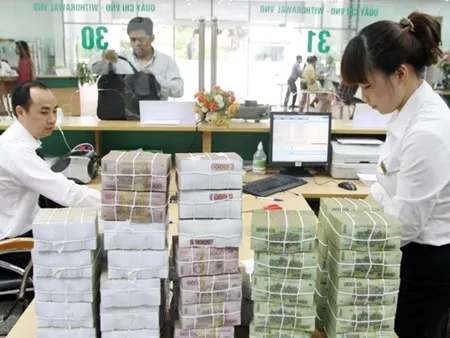20% ceiling interest rate question remains open

Delegates at the recently held 10th session of the 13th National Assembly voiced their support for a maximum fixed interest rate of 20 per cent per year, as stipulated in the Civil Code.
They also approved several matters discussed by members of the National Assembly Standing Committee relating to banks' interest rates, as mentioned in paragraph 1, Article 468 of the Civil Code.
Accordingly, the negotiated interest rate should not exceed 20 per cent per year, excluding those loans stipulated in other laws or regulations.
Dr Cao Sy Kiem, former governor of the State Bank of Vietnam (SBV), said many National Assembly deputies voted for a fix interest rate of 20 per cent, as stated in the Civil Code. This would help avoid fraud on the "black" credit market that often saw heavy rates and brought negative consequences for the society, Kiem said.
The former SBV governor said the 20 per cent rate would be applicable to all loans, excluding those stipulated by relevant laws that have different regulations. This means credit organisations operating in accordance with the Law on Credit Organisations and the Law on the State Bank of Vietnam will not be affected by the latest adjustment on the 20 per cent rate as regulated in the Civil Code, but will be affected by the Law on Credit Organisations.
Therefore, he said, credit organisations could set interest rates through negotiations with partners and customers. However, in some special cases or in emergencies, the central bank can make immediate requests to control the market promptly in line with the Law on the State Bank of Vietnam.
Kiem said it was essential to implement the ceiling interest rate of 20 per cent when banks operated well and businesses gained a lot of trust. Otherwise, when the negotiated rate surpasses 20 per cent per year due to certain factors such as inflation, natural disasters, epidemics and war, it may lead to sudden high demand for loans.
Earlier, on October 24, National Assembly deputies proposed a plan on the ceiling interest rate that did not mention any exceptional cases as stipulated in other relevant laws. After that, they agreed on adjustments to Article 468 of the Civil Law in line with practical conditions.
Dr Nguyen Tri Hieu, a leading banking and finance expert, said the ceiling interest rate should be controlled. The rate should be adjusted in line with market changes, rather than setting a fixed rate of 20 per cent per year, and in accordance with real operations of credit organisations and deposit rates, as well as expenses on loans.
In addition, the rate margin should be carefully calculated due to risks in credit organisations' operations. For example, when the deposit rate is about 11 per cent, loan expenses are about nine per cent, the risk management rate is two per cent, and bank's profit is at least three per cent, the real ceiling rate must rise to more than 20 per cent.
Hieu said, "When the risk of credit organisations' operations is high, the margin of interest rate should be expanded. In some cases, the margin of interest rate may reach 10 per cent or even higher."
According to Hieu, it is necessary to encourage the participation of all economic sectors and banks in identifying risks and setting interest rates based on loan expenses. The fixed ceiling rate of 20 per cent per year may prevent banks from launching credit packages with more risks.
However, Hieu also said all participants must obey the law. Relevant agencies such as the justice ministry, the National Assembly Office, the State Bank of Vietnam, and the court, should issue more specific documents and guidelines on the implementation of the Civil Code in a transparent manner and in accordance with the market mechanism of credit organisations, thus stabilizing interest rates and promoting the development of the financial and banking system.
Hieu's opinion was shared by Truong Thanh Duc, chairman of the Vietnam Banking Association's Legal Club, who said the adjustment of the fixed ceiling rate at 20 per cent per year was a positive sign that would ensure transparency in the local credit market.
Duc said he supported further hike of the ceiling rate to more than 20 per cent per year, even to 30 per cent or 50 per cent in some special cases.





